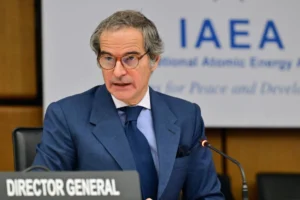Cairo, Egypt – Pakistani Foreign Minister Ishaq Dar warned during a meeting of the Contact Group on Afghanistan at the Organization of Islamic Cooperation (OIC). He stated that the continuation of terrorism in Afghanistan poses a direct threat to regional security and stability. He emphasized the need for urgent and coordinated action at the regional and international levels. The goal is to contain this growing threat.
Dar pointed out that Afghanistan cannot remain isolated from the international community. He emphasized that combating terrorism requires political will and effective cooperation between neighboring countries and the international community. He also called for the formation of a group of experts from the organization to develop a comprehensive roadmap for peace. The map would include practical steps to combat terrorism and promote stability.
Dimensions of the Afghan crisis
The crisis in Afghanistan goes beyond security to encompass economic, social, and political dimensions. Economic collapse, weak state institutions, and widespread poverty are all factors that could increase the activity of armed groups. These conditions facilitate their activities, exacerbating the challenges facing neighboring countries.
Dar emphasized that Pakistan is ready to support any collective initiatives aimed at achieving peace. He called for the development of coordinated regional strategies to confront extremism and security chaos. His message implicitly carries a clear call to the international community: not just watch, but actively engage in comprehensive solutions.
Analysis: The Future of Regional Security Between the Challenges of Terrorism and Development
Pakistan’s warnings reflect genuine concern that Afghanistan is becoming a safe haven for terrorist groups. This situation threatens the national security of neighboring countries and represents a continuing pressure factor for regional stability. Afghan security is closely linked to the level of economic development. It also depends on the strength of state institutions and the government’s ability to enforce the law.
Instability in Afghanistan could lead to mass displacement and increased activity by drug and arms smuggling networks. The spread of extremism in the region requires a comprehensive approach that combines security, political, and development solutions.
Pakistan’s message to the international community appears to be that Afghan stability is a collective responsibility. Any inaction could have repercussions that extend beyond Afghanistan’s borders. These repercussions could affect the human, political, and economic security of the entire region.

















